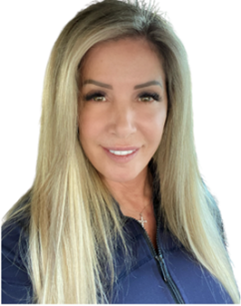HER Story: Brandee Nielsen is committed to helping
HER Story
Brandee Nielsen is committed to helping others succeed

I‘m an Agile Coach, and Policy and Procedures Manager at PwC in the Products and Technology Organization, Low Code Services Segment. Though I‘m aligned to our Tampa, Florida office, I work remotely.
At PwC I work with people who ideate, develop, and deliver digital assets and software products through agile frameworks and engineering practices. What I love most about my job is getting to coach, teach, and mentor others to be effective at applying agile values and principles to their daily roles and responsibilities. By doing so, I‘m able to make a difference and help influence others to reimagine what‘s possible.
A company committed to helping others succeed
PwC‘s purpose is to build trust in society and solve significant problems—that‘s a purpose I can get excited about and stand behind. I‘m 24 years into my career, working at PwC for nearly three years, and I can honestly say that I enjoy the work that I do here. PwC cares about the whole person within the employee at any tier level in any position, global or domestic.
Throughout my long career, I have continued to grow my leadership and coaching skills and technical knowledge for two critical reasons: I crave information, and I want to help others.
There‘s no greater satisfaction I‘ve known than helping others succeed.
Discovering data: A love story
Working in technology was never a thought in my mind growing up. Instead, I wanted to be a singer and songwriter and pursued that career until I came to a crossroads in my late teens when faced with the decision of having a child.
When my daughter was born, the world completely changed before my eyes, along with my priorities and desires. Providing her with security drove me to try different career paths to better our quality of life and her future. I landed a bookkeeping job and fell in love with reconciling data—a reality that is still a complete mystery to me!
I grew up in a challenging environment, which paused my formal education until years after my daughter was born.
Fortunately, my first real job introduced me to data and to two of my greatest mentors —the owners of a small company. Over seven years, they taught me about business management while I managed the books and the business. I remain deeply grateful that they took a chance on me. It completely changed the trajectory of my life. I will never forget the words they repeatedly told me, This is your college education, and you can achieve anything you put your mind to.
My daughter‘s existence was my motivation for formal education, knowing that it could help me to help her. Since I was familiar with some of the practices from my experience as a bookkeeper working with CPAs during audits, I pursued a degree in accounting. Later, I changed my pursuit toward a degree in psychology with an emphasis on addiction. Neither has anything to do with IT and software development but lend themselves well to foundational, emotional, and practical applications—across industries.
Several years later, I worked as an analyst in the billing department of an early cellular phone provider, where I reconciled data on customer invoices before they were sent out. I became a business analyst in the company‘s call center, improving the call center processes, which required software and system enhancements based on Institute of Electrical and Electronics Engineers (I.E.E.E) standards and Unified Modeling Language practices.
I excelled as a business and systems analyst in software development, which led to managing people, products, projects, and programs. I eventually transitioned to agile methodologies as a product owner, scrum master, and, finally, where I am today, an Agile Coach.
Learning through lived experience
Because formal education was an afterthought, trade education has been a great experience for me. I continuously learn from the conferences I attend, the certifications I‘ve achieved, the memberships I hold, the relationships and networks I maintain, the literature I read, and the countless courses I‘ve taken over the years. All these learning opportunities directly influence the knowledge and information I feel I need to be proficient and excel at my job.
Ultimately, I find that lived experience can be essential to learning what you need to know to continually improve and succeed. Don‘t be afraid to try experiences outside the bounds of your formal education.
#BreaktheBias by believing that you can do anything
To break the bias means re-imagining what‘s possible! It‘s the epitome of continuous improvement. Our biases can be influenced by our background, personal experiences, societal stereotypes, or cultural context. Fortunately, they are not the same as everyone else‘s. Once we begin to understand how our biases negatively impact ourselves and others, we can work to change them. I‘ve explained a bit of my own background and personal experiences in this blog, some of which others may have been taught as somehow less than. Once upon a time, I was hesitant to share my story in the workplace. Because biases are being broken in the workplace, so too is my reluctance to share my story.
Know that you were born with inherent, foundational technology skills. Your inherent imagination can drive creativity. Your creativity can drive problem solving. Problem solving can drive your ability to identify improvements. Making those improvements can make the difference in your success. Don‘t be afraid to shatter biases by believing that you can do anything.
